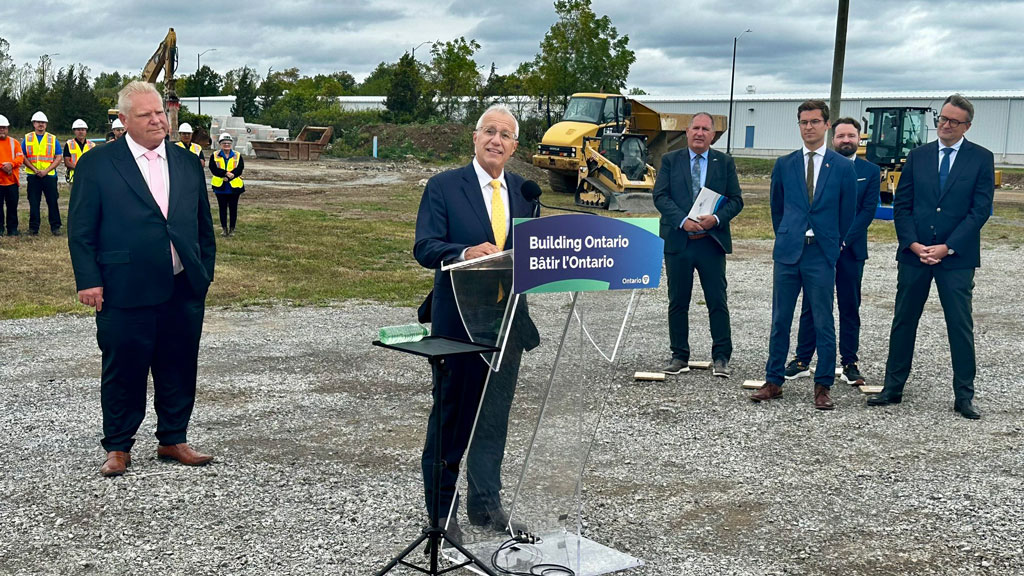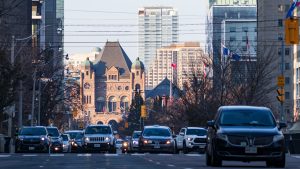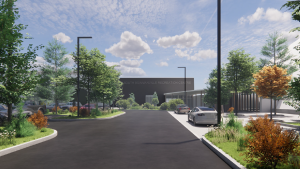Swiss-based agri-food producer Jungbunzlauer has announced it will spend $200 million to expand its operations in Port Colborne, Ont. creating 300 construction jobs and 50 full-time manufacturing jobs.
The investment was announced by Jungbunzlauer CEO Bruno Tremblay on the site of the firm’s existing facilities in Port Colborne, with Ontario Premier Doug Ford in attendance. The new facilities are being supported by $4.8 million from the Invest Ontario Fund.
The commitment comes five months after Japanese firm Asahi Kasei announced it will spend $1.56 billion to build an integrated lithium-ion battery separator plant in Port Colborne.
The new facility will produce xanthan gum, a thickening agent with culinary, cosmetic and pharmaceutical uses.
Jungbunzlauer will gain additional capacity to supply xanthan gum to customers throughout North America.
“We’ve been a proud part of the Port Colborne community for more than 20 years,” Tremblay said. “In that time, we’ve invested $560 million into our local facility to expand capacity and improve sustainability. As we look ahead to the next 10 years, we expect to continue to make significant investments in capacity, sustainability and the community.”
The current 50,000-square-foot facility produces citric acid and special salts using a natural fermentation process.
Corn, water and power
Tremblay said Jungbunzlauer continues to invest in Port Colborne and Ontario because of its access to Canadian-grown corn, an essential ingredient in its products, as well as Ontario’s ample supply of water and green electricity.
He said the xanthan gum that will be produced at the new Port Colborne plant will be high grade, probably close to pharmaceutical grade, “so it will require very specific investments to make sure that we have top-notch quality gums which are produced here.”
Tremblay said the new commitment represented the first phase of investments that are “going to propel the capacity of our bio-fermented ingredients to probably being the number one as well in North America.”
Ontario Minister of Economic Development, Job Creation and Trade Vic Fedeli responded to a question on how the investment would change lives in the region.
“The construction that’s going on, we toured the Asahi Kasei plant just a couple of weeks ago, we sent the drone up to show us some video, the thousands of men and women who are going to be working on that site for a couple of years, and then the employees that will be in that almost $2-billion plant, this has changed their lives right across Ontario and right here,” said Fedeli.
The start of commercial production at the Asahi Kasei plant was slated for 2027 when it was announced. The phase one expansion of the Jungbunzlauer plant is expected to be operational from spring 2026.
Tremblay said his firm has made major investments over the last five years to decarbonize its footprint, including a commitment that any new products will be carbon neutral.
The firm intends to install heat pumps at the Port Colborne plants as well as hot water recycling equipment, he said, and an entire electrification program has been planned for further growth of the site.
“Electrification will be key for us to be able to decarbonize our footprint here in Port Colborne, and therefore I’m asking for the help of all the officials here to make sure that we get enough green power to support our decarbonization initiatives,” said Tremblay.
The plant will utilize natural fermentation technologies to further reduce its environmental footprint. The site uses electrical evaporation and hot water recovery systems with heat pumps to reuse energy and reduce the overall use of natural gas.
Ford commented, “They’re choosing Ontario because of our competitive business environment, because the work our government has done to cut red tape by over a billion dollars, to reduce the cost of electricity between 15 and 17 per cent, to keep taxes low.”
Follow the author on X/Twitter @DonWall_DCN.











Recent Comments
comments for this post are closed